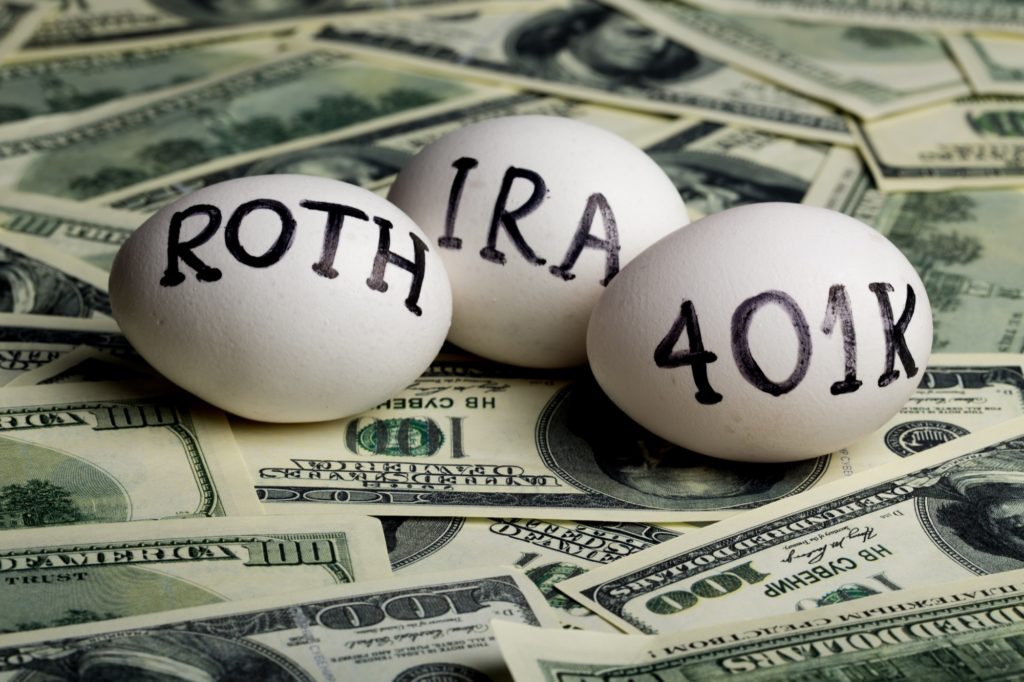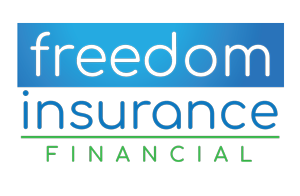
Did you know that 35% of Americans have no retirement savings, according to a survey taken by FinanceBuzz? The importance of saving for retirement cannot be understated since the average senior citizen in the US only receives approximately $18k from Social Security per year.
When choosing a retirement savings plan, it’s essential to review the variety of options to see which will work best for your financial situation. Should you choose a 401k vs. Roth IRA? In this guide, we will break down what each of these savings plans can offer you.
What Is a 401k?
A 401k is a retirement account that provides you with the opportunity to save for retirement by setting aside money from your paycheck. You can contribute up to $19,500 per year to the account.
If it’s a company-sponsored plan, they may match a percentage of your 401k contributions. These contributions are made before taxes are taken out of the paycheck.
Benefits of a 401k
A 401k can benefit the employee as it allows for a more straightforward withdrawal process and even comes with tax advantages. The employer is responsible for managing the contributions and investments, which can provide employees with a sense of security.
401k retirement accounts are tax-deferred, which means that you don’t have to pay taxes on your contributions until you withdraw the money. In addition, 401ks provide some protection in the case of disability or death.
Drawbacks of a 401k
There are a few drawbacks to 401ks, such as the amount of time it takes for you to be able to withdraw funds. You need to be at least 59 1/2 years old before you can withdraw your funds from your 401k account. 401k contributions are also limited by a maximum annual contribution limit of $19,500, and early withdrawals may have tax and penalties applied.
How the Stock Market Affects 401ks
The funds in a 401k plan are invested in a range of securities, such as stocks, bonds, and mutual funds. These securities are all traded on the stock market.
The stock market affects 401k retirement plans because it affects the overall performance of the retirement plan. When the stock market is doing well, the 401k retirement plan is performing well, and the account holder will see an increase in their retirement savings. When the stock market is doing poorly, the 401k plan will not be performing well, and the account holder will see a decrease in their retirement savings.
Most 401k plans have a default option for which investments the employee can choose from. But some employers allow employees to choose their own investments. This is called a Self-Directed 401k, and larger corporations usually offer it.
Before enrolling in a 401k retirement plan, it’s wise to review which securities your company’s plan invests in. The growth you can potentially see in the long-term depends on how stable the invested securities are.
What Is a Roth IRA?
A Roth IRA is a retirement plan that gives you tax-free growth and tax-free income in retirement because you’ve already paid taxes on the money you contributed. Unlike a traditional IRA, contributions to a Roth IRA aren’t tax-deductible, but qualified distributions (including earnings) are tax-free.
Benefits of a Roth IRA
You own a Roth IRA rather than your employer. The earnings from the account, however, grow tax-free and can be withdrawn tax-free. Some additional benefits of Roth IRAs include:
- No income restrictions: high earners can contribute to a Roth IRA too
- You can withdraw contributions at any time without penalty
- Taxes are not due on earnings until withdrawal
Drawbacks of a Roth IRA
Roth IRAs have a lot of benefits, but there are also some potential drawbacks. For one, your contributions will not be tax-deductible, and neither will the income that the investments earn. You’ll have to pay taxes on all withdrawals you make in retirement. In addition, if you withdraw money early from your Roth IRA, any earnings made on your contributions will be subject to income tax and, potentially, a ten percent penalty.
401k vs. Roth IRA: Which Should You Choose?
The critical difference between a 401k and a Roth IRA comes down to when you pay taxes on your contributions. A 401k retirement account is funded with money from your paycheck before taxes are taken out and is a tax-deferred savings plan.
In contrast, a Roth IRA is funded with money from your personal savings and is a tax-free savings plan. Deciding which of these plans will work best for you ultimately depends on your financial situation.
Who Are 401k Retirement Accounts Best For?
401K retirement accounts can be an excellent benefit for people who work in companies with 401K plans. Employers often match your contributions, and the money gets deposited into your account tax-deferred. To avoid penalties, you must begin taking withdrawals at age 70 1/2.
Who Are Roth IRA Accounts Best For?
Roth IRA accounts are best for people who want to save money on taxes now and in the future. Contributions to a Roth IRA are not tax-deductible, but they grow tax-free. They can be withdrawn tax-free at any time, unlike contributions to a traditional IRA, which are deductible, but withdrawals are taxable.
Are You Ready To Start Planning for Retirement?
No matter which retirement plan you choose between a 401k vs. Roth IRA, getting a head start on your financial planning is always a wise investment. At Freedom Insurance Financial, we have financial planning experts who can help you prepare for a stress-free retirement. Contact us online, or give us a call at (407) 344-1228 today to start planning for your future.
